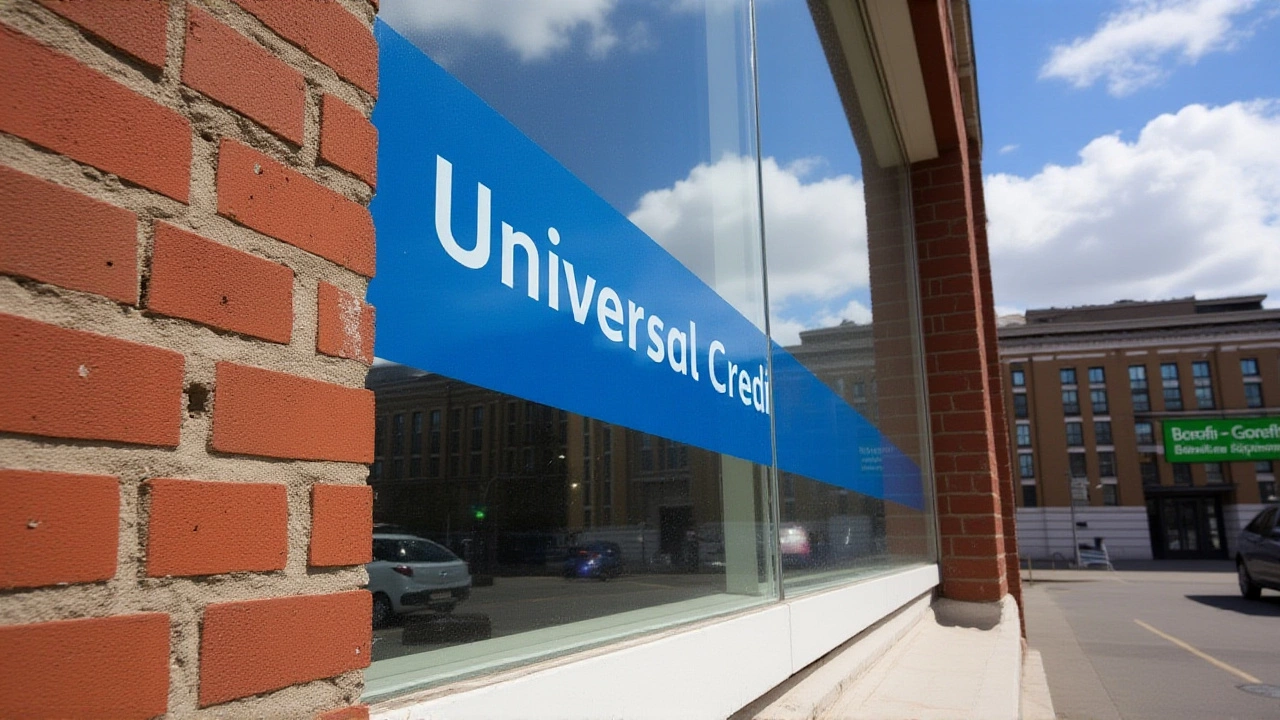
On Friday, 22 August 2025, millions of UK households received their state support early — not because of a payroll glitch, but because the government made a deliberate move to shield families from the financial uncertainty of a long weekend. The Department for Work and Pensions pushed back all benefit payments originally due over the August bank holidayUnited Kingdom to the preceding Friday, ensuring that 24 million recipients — including those on Universal Credit, State Pension, Child Benefit, and Personal Independence Payment — had their money in hand before the Monday holiday. It’s a small logistical shift, but for many, it’s the difference between paying the rent on time or scrambling.
Why Friday the 22nd? The Logic Behind the Move
The August bank holidayUnited Kingdom falls on Monday, 25 August, meaning that payments normally scheduled for Saturday, Sunday, and Monday would have been delayed until Tuesday. That’s unacceptable when families depend on these funds for groceries, medicine, or school supplies. So the Department for Work and Pensions moved everything forward — a standard practice during public holidays, but unusually large in scale this year.
"We know how much families rely on these payments," said Sir Stephen Timms, Minister for Social Security and Disability. "By bringing them forward ahead of the bank holiday, we're ensuring no one has to worry about whether their support will be there when they need it most."
The timing is no accident. The shift lands just weeks before the full rollout of the government’s expanded free childcare scheme, which kicks in September 2025. Under the new policy, every child under five in England, Scotland, and Wales will qualify for 30 hours of free childcare per week — a massive relief for working parents. But preparing for that transition requires upfront costs: uniforms, childcare deposits, transport. This early payment isn’t just convenient — it’s strategic.
Scotland Follows Suit — Except for One Exception
While the Department for Work and Pensions handles benefits across England and Wales, Scotland operates its own social security system through Social Security Scotland. But in a rare show of alignment, they mirrored the UK-wide adjustment. Payments for Adult Disability Payment, Carer Support Payment, and Scottish Child Payment were all moved to Friday, 22 August.
One notable exception: Best Start Foods. That program, which provides vouchers for healthy food to low-income families with young children, remained on its regular schedule. Officials say it’s because the vouchers are distributed via retailers and banks that operate differently than direct benefit payments.

Legacy Benefits Are Vanishing — And So Are the Rules
This early payment isn’t just about a holiday. It’s part of a much larger transformation. By January 2026, the Department for Work and Pensions plans to complete the migration of all remaining recipients of "legacy benefits" — like Income Support, Housing Benefit, and Jobseeker’s Allowance — into the single, streamlined Universal Credit system.
That transition has been messy. Over 1.5 million people have already moved over, and many report delays, confusion, or benefit cuts. Now, the government is adding another layer: starting in 2026, Universal Credit claimants will see a 2.3% above-inflation increase — the first real-terms rise in over a decade. But here’s the catch: for new claimants, the health-related component — which used to pay £105 per month — is being slashed to £50 and frozen until 2029. That’s a £200 monthly hit for disabled people entering the system after next year.
Confusion Lingers — And Billions Go Unclaimed
Despite these changes, a troubling reality remains: two-thirds of UK adults say they don’t understand whether they qualify for benefits. According to The Big Issue, an estimated £2.3 billion in state support goes unclaimed each year — money that could lift families out of hardship.
"People think they’re not eligible because they’re working, or they’ve got a bit of savings," said Dr. Naomi Patel, a welfare policy researcher at the University of Manchester. "But the thresholds are far more generous than most realize. A single parent earning £25,000 a year might still get £300 a month in Universal Credit. That’s a bus pass, a warm home, a decent meal."
The Department for Work and Pensions is urging anyone who didn’t receive their payment on Friday, 22 August to contact them immediately. The agency says no one should assume a missed payment is normal — especially during this window of change.

What Comes Next?
The next big milestone? The full rollout of free childcare for under-fives in September 2025. That’s expected to free up an estimated 350,000 parents — mostly women — to return to work. But it also means more pressure on the Department for Work and Pensions to get payments right, on time, and without confusion.
And then there’s the 2026 Universal Credit increase. Will it be enough to offset the cuts? Will the migration process be smoother? And will the government finally invest in public education about benefit eligibility?
For now, the early payment is a band-aid. But it’s one that matters.
Frequently Asked Questions
Who exactly received payments early on 22 August 2025?
Approximately 24 million people across the UK who receive any DWP-administered benefit — including Universal Credit, State Pension, Child Benefit, PIP, Carer’s Allowance, and others — got paid on Friday, 22 August 2025. This includes recipients in Scotland, where Social Security Scotland matched the change for most payments, except Best Start Foods.
Why wasn’t the payment date moved to Thursday instead of Friday?
The DWP’s standard payment schedule assigns Friday to claimants with National Insurance numbers ending in 80–99. Moving all payments to Friday avoided disrupting the existing system. A Thursday shift would have required rewriting payment algorithms for all 24 million recipients — a technical risk the department chose not to take.
What’s the impact of the Universal Credit health element cut from £105 to £50?
New claimants with health conditions will lose over £200 per month starting in 2026. That’s enough to cover monthly prescriptions, mobility aids, or heating costs. Critics argue it penalizes disabled people at a time when living costs are rising. The government says it’s a cost-saving measure to fund the overall benefit increase.
How can someone check if they’re missing out on benefits?
The government’s official Benefit Calculator is the best starting point, but independent charities like Turn2us and Citizens Advice offer free, personalized checks. Many people qualify for support they don’t claim — especially those with complex incomes or disabilities.
Will future bank holidays trigger early payments too?
Yes — this is now standard policy. Any benefit payment due on a bank holiday weekend is moved to the preceding working day. The DWP has done this for Christmas, Easter, and other holidays for years. The August 2025 move was just larger because of the number of recipients and the timing with childcare expansion.
What should someone do if they didn’t get paid on 22 August?
Contact the DWP immediately via phone or online journal. Payments are processed in batches, and delays can happen due to bank holidays or system updates. But if you’re due a payment and it hasn’t arrived, don’t wait — call within 48 hours. The DWP confirms it’s tracking all early payments and has resources to resolve missed transfers.